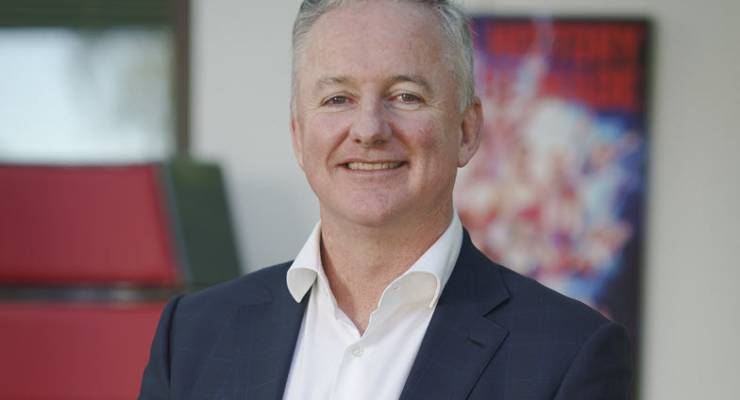
The extraordinary letter from the Commonwealth Attorney-General’s Department (AGD) threatening the Nine Network over its broadcast of Al Jazeera footage as a potential breach of Australia’s foreign influence laws is another moment in the Attorney-General’s Department’s long history of attacking media freedoms and threatening basic rights.
One Nation, you’ll recall, was deeply embarrassed first by an Al Jazeera exposé of its expedition to the US to secure funding from US gun lobbyists to overturn Australia’s gun laws, and then later by footage of one of its senior candidates at a strip club. Nonetheless, the LNP swapped preferences with One Nation during the election campaign.
The correspondence is remarkable because it is difficult to recall another example of a departmental bureaucrat — the name is blanked out in the document, but one Lucinda Atkinson is the current Assistant Secretary, Institutional Integrity Branch — taking the initiative to contact the media and issue a warning. Bureaucrats normally recoil from media contact as if reacting to poison, but the letter goes on and on for hundreds of words. Bizarrely, the author explicitly admits that Nine did not breach any law when it broadcast the Al Jazeera footage, given Al Jazeera says it did not consent to the broadcast, but nonetheless “strongly encourages” Nine to undertake a “self-assessment” about whether it should register with the department as acting on behalf of a foreign principal.
The AGD has, for more than 15 years, been the driving force behind Australia’s most draconian laws, which have severely eroded basic freedoms in the name of national security. It was the department behind the single greatest attack on media freedom and whistleblowing in recent decades, data retention, which makes it dramatically easier for the AFP to hunt down journalists and whistleblowers who have embarrassed the government. It was also behind the Turnbull government’s attack on encryption, designed to make the secure internet traffic that 21st-century economies depend on less safe and more open to abuse by malicious actors.
Often slipshod in its legal drafting, reflexively secretive in its “consultation” and inept in its appearances before parliamentary committees, the AGD has nonetheless succeeded in materially reducing both civil rights and media freedom in Australia, without any benefit for our security. Indeed, AGD was behind a stunning bungle that may have cost lives when it ignored a letter from Lindt Cafe perpetrator Man Haron Monis that might have alerted authorities to his intentions — and then promptly hid its mistake by failing to give the letter to the government’s Lindt Cafe inquiry, and misled Parliament about doing so. The department never conducted any “self-assessment” about how much its errors may have contributed to the loss of life.
The AGD has also been continuing its campaign against media freedom through its tactics in the prosecution of Witness K and Bernard Collaery over their revelation of the Australian Secret Intelligence Service’s crimes in Timor-Leste. With Attorney-General Christian Porter having approved the prosecution, he and his department haven’t been content to let the notionally independent Director of Public Prosecutions pursue the case alone. They have intervened with their own barrister with the goal of trying to cover up any court proceedings behind a veil of national security secrecy. They have introduced secret documents that K, Collaery and their lawyers are not permitted to see and, most of all, they have dragged out the trial as long as possible by refusing to permit Collaery to brief his own lawyers about the charges against him, which include those relating to ABC journalists and producers.
All this is why, as Crikey explained in 2013, the AGD is the greatest threat to our rights in the country.
That was supposed to change when then-attorney-general George Brandis was humiliated by the establishment of a Home Affairs portfolio by Malcolm Turnbull to keep Peter Dutton at bay, with the national security areas of his portfolio, and the AFP and ASIO, being moved from the AGD. But the persecution of K and Collaery since then, and the “strong encouragement” to the media to engage in “self-assessment” about its reporting, suggests that the AGD’s loathing of civil rights and media freedom remains in its very marrow.








It is a sad state of affairs when your own government is a bigger threat to your safety and wellbeing than any terrorists…
“One Nation, you’ll recall, was deeply embarrassed …”
Bernard, I must disagree. My old Gran always said that it took grace to be embarrassed. I have never seen one fibre of grace exhibited by any member of One Nation.
I don’t think the various members were embarrassed by the Al Jazeera revelations at all. That their general behaviour fits the description of sleazy is about par for the course for ON.
On Witness K and Bernard Collaery I fully agree. The behaviour of the AGD is not what we are entitled to expect in an open democracy. I never thought that the standard could fall below the level we witnessed when Brandis was A-G. How wrong was I!
You only have to watch AGD secretary Chris Moraitis (ex-DFAT) at Estimates to see that his department is just a LNP poodle.
This says it all:
Please watch this short video and be truly ashamed of our Government.
https://www.youtube.com/watch?v=Lk3v4rKhseI
Juice Media should be nominated Truthtellers of the Year.
100% we are living in a fascist state. IR policy. Media harassment and news reporting. Stealing from Timor Leste (why aren’t the RSL protesting this after the persecution the people there endured at the hands of the Japanese for assisting our troops?). Don’t expect much better from the other side. Remember Gareth Evans champagne celebrations with Indonesian Foreign Minister Ali Alatas and their mile high love in after their combined theft of the spOILs of Timor Leste. You think Labor want their incompetence or mistakes publicly available:?
As I have said for many years now – we have the worst politicians at any time in our history.